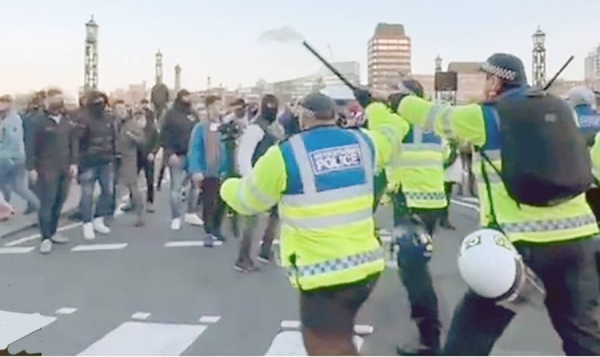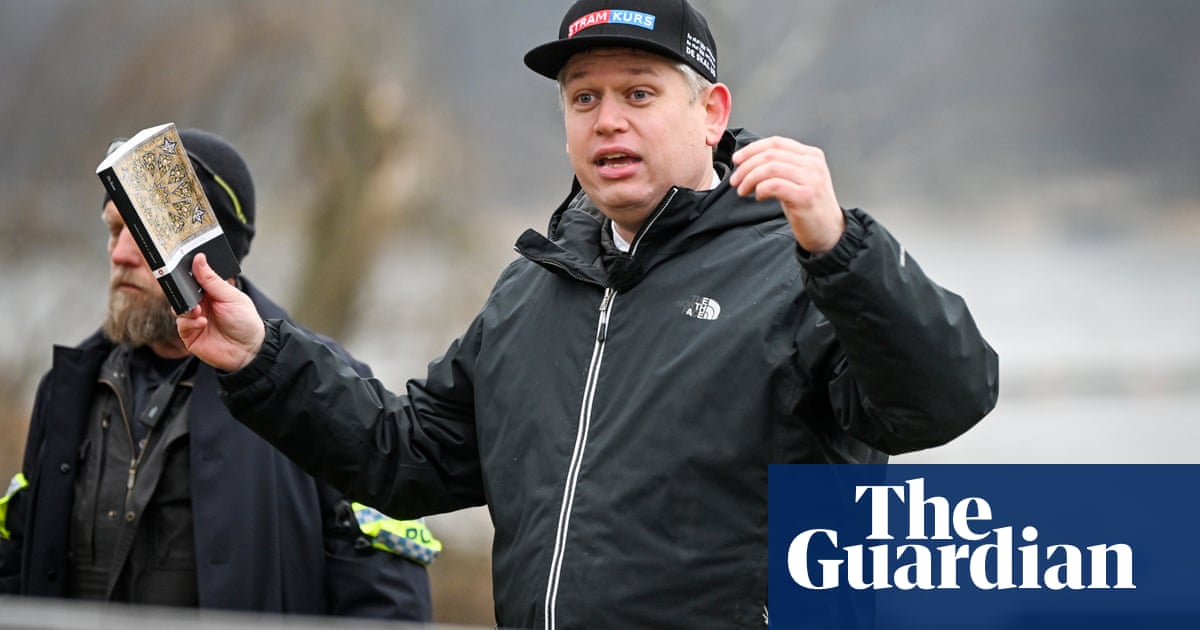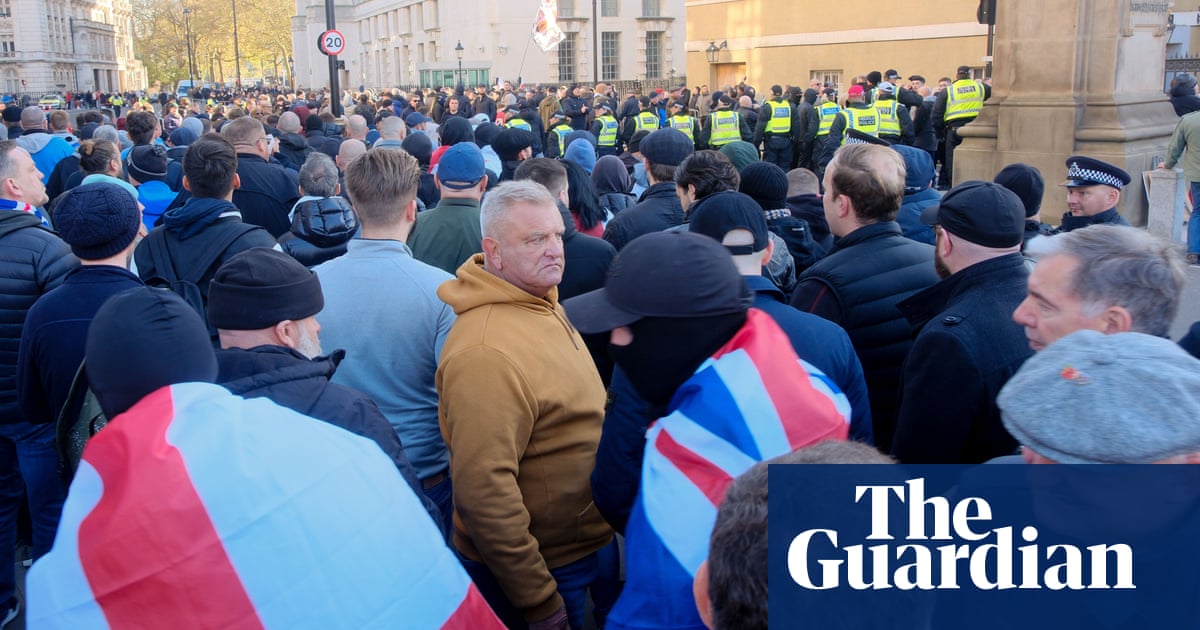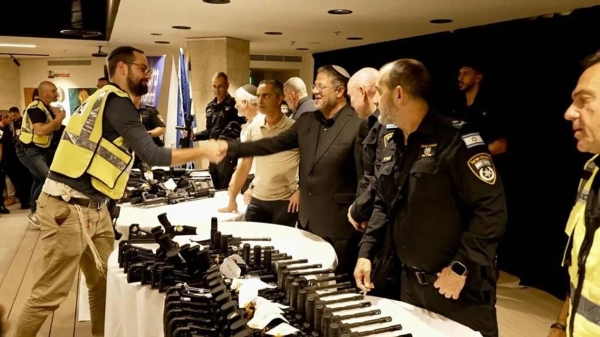
The Met Police has condemned “extreme violence from right-wing protesters” who it says set out to confront Saturday’s pro-Palestinian march.
Nine officers were injured and 126 people arrested — the “vast majority” of whom were counter-protesters.
Police added while the march itself did not see such physical violence, serious offenses relating to antisemitic hate crimes were being investigated.
The British PM Rishi Sunak said those involved in crimes must face the full force of the law.
Sunak said: “I condemn the violent, wholly unacceptable scenes we have seen today from the EDL (English Defense League) and associated groups and Hamas sympathizers attending the National March for Palestine.
“The despicable actions of a minority of people undermine those who have chosen to express their views peacefully.”
He added that “EDL thugs attacking police and trespassing on the Cenotaph” war memorial had disrespected the honor of the UK’s armed forces.
The pro-Palestinian demonstration —which coincided with Armistice Day — saw some 300,000 people march through central London calling for a Gaza ceasefire.
It was the biggest UK rally since the war between Israel and Hamas began on Oct. 7.
On Saturday, Assistant Commissioner Matt Twist said the march had taken place against a backdrop of conflict in the Middle East, remembrance events and a “week of intense debate” about protest and policing, which “all combined to increase community tensions”.
It comes after Home Secretary Suella Braverman described the pro-Palestinian protests as a “hate march” and accused the police of bias in a Times article this week. She later stressed she backed the police.
Writing in the Sunday Telegraph, Labour leader Sir Keir Starmer accused her of “demeaning her office”, adding “few people in public life” had done more to “whip up division”.
And Mayor of London Sadiq Khan called for her to resign or be sacked.
But Defense Secretary Grant Shapps told the BBC’s Laura Kuenssberg it was “perfectly proper” for the home secretary to engage in debate about the policing of the march.
Ex-Cabinet minister Nadine Dorries also suggested that, as a women in high office, criticism of Braverman was “steeped in misogyny and sexism”.
Downing Street has said it is “looking into what happened” over the Times article, and the PM has confidence in Braverman.
Assistant Commissioner Twist said the violence directed towards officers on Saturday was “extraordinary and deeply concerning”, with nine injured after counter-protesters clashed with police along Whitehall and in Chinatown.
“They arrived early, stating they were there to protect monuments, but some were already intoxicated, aggressive and clearly looking for confrontation,” he said.
Officers protecting the Cenotaph faced abuse and chants of “you’re not English any more”.
Many in these groups, who were “largely football hooligans from across the UK”, were stopped and searched, with weapons including a knife, baton and knuckleduster found, as well as class A drugs.
Most arrests were made to “prevent a breach of the peace”.
The assistant commissioner continued that while the pro-Palestinian march “did not see the sort of physical violence carried out by the right wing”, it was clear that for Jewish communities “the impact of hate crime and in particular antisemitic offenses is just as significant”.
He said “a number of serious offenses identified in relation to hate crime and possible support for proscribed organizations” during the protest were being investigated.
Police issued five photos of six individuals suspected of hate crimes. One shows a woman carrying a placard on which the Jewish symbol, the star of David, is shown to incorporate a Swastika.
Elsewhere, footage shared on social media showed Michael Gove ushered through London’s Victoria Station by police officers, as crowds waving Palestinian flags shouted: “Shame on you.”
A source close to the levelling up secretary said he had been returning from his constituency and was taken away in a police van.
During the protests, BBC News was given rare access to the Met Police’s control room in south London, which includes thousands of cameras.
One live feed from a police helicopter was powerful enough to show a man sitting in a pub window and how much he had left in his drink.
On the pro-Palestinian march, chants of “free Palestine” and “ceasefire now” could be heard as crowds began marching from London’s Hyde Park.
At one point the march, organized by the Palestine Solidarity Campaign, extended from the Hilton Hotel in Park Lane to the US Embassy in Nine Elms — a distance of roughly 2.5 miles.
One demonstrator told BBC News: “We want a ceasefire. People are suffering, children are dying under the rubble, and no-one seems to care about them.”
Another protester said: “I think it is the perfect day to actually do it on. Because that’s what Armistice is, it is a call for ceasefire and a call for stopping war.”
On Sunday, the Met Police issued an appeal for information regarding videos filmed in Waterloo and Victoria stations showing “unacceptable abuse including antisemitic language, as well as threatening behavior”.
No major protest is scheduled to take place on Remembrance Sunday, although the policing operation will continue with some 1,375 officers deployed amid commemoration events in the capital. — BBC












